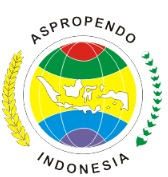Strategi Pemasaran Program Yayasan Ranu Welum Sebagai Non Governement Organization (NGO) Lingkungan Hidup di Kalimantan Tengah
DOI:
https://doi.org/10.37304/ej.v4i1.7950Keywords:
Non-Government Organization (NGO), Environmental NGO, Marketing Strategy, Program Marketing Strategy, SWOT AnalysisAbstract
In general, non-government organizations (NGOs) are known as grassroots organizations with unconventional, unique movements and often have bottom-up movements with programs that tend to be thematic and adapt to the surrounding circumstances. Even though they are not involved much in marketing activities, NGOs themselves cannot be separated from various marketing techniques. This is unavoidable because the thematic nature of programs that are carefully planned by the implementing NGO must be promoted to stakeholders (if needed) and potential donors, which will then be forwarded to the targets of the prepared programs. This study aims to describe the program marketing strategy that has been implemented by the Ranu Welum Foundation as a representative of environmental NGOs in Central Kalimantan and to design a generic strategy for program marketing based on their strengths and weaknesses as well as the opportunities and threat experienced. The research method is carried out with a qualitative approach, namely by conducting participatory observations and case studies in the form of a literature study on reports and analyzed using the SWOT matrix. The results show that the Ranu Welum Foundation as one of the environmental NGOs in Central Kalimantan, calculated using the SWOT matrix, implements an aggressive strategy in which environmental NGOs in Central Kalimantan use all available strengths and opportunities to attract people from various walks of life, especially rural communities, to become the target as well as the key figure of the marketed programs. The participation of NGO staff, especially field staff, is also a strategy that NGOs rely on to maintain consistency in the marketing of programs that have been implemented.
Downloads
References
Bastian, I. 2007. Akuntansi Untuk LSM dan Partai Politik. Erlangga, Jakarta.
Binder-Aviles, H. 2012. The NGO Handbook: A Handbook Series Edition. Washington D.C.: Bureau of International Information Programs United States Department of State.
Brown, L. D. & Moore, M. H. 2001. Accountability, Strategy, and International Nongovernmental Organization. Nonprofit and Voluntary Sector Quarterly. 30(3): 569-587.
Gemmill-Herren, B. dan Bamidele-Izu, A. 2002. The Role of NGOs and Civil Society in Global Environmental Governance. Global Environmental Governance: Options and Opportunities. 8(1): 1-24.
Ikatan Akuntansi Indonesia. 2013. ED PSAK 68: Pengukuran Nilai Wajar. Jakarta: Dewan Standar Akuntansi Keuangan.
Kotler, P. 2000. Marketing Management: Millennium Edition. Boston: Pearson Custom Publishing.
Kuwing Baboe, Rinto Alexandro. 2017. Pengaruh Strategi Pemasaran Terhadap Peningkatan Volume Penjualan Pada Alfa Mart Di Jalan Diponegoro Kota Palangka Raya. Vol 7 No 1 hal 1-9. https://e-journal.upr.ac.id/index.php/JP-IPS/article/view/3183.
Mandasari, D. J., Widodo, J. & Djaja, S. (2019). Strategi Pemasaran Usaha Mikro, Kecil dan Menengah (UMKM) Batik Magenda Tamanan Kabupaten Bondowoso. Jurnal Pendidikan Ekonomi: Jurnal Ilmiah Ilmu Pendidikan, Ilmu Ekonomi, dan Ilmu Sosial. 13(1):123-128.
Porter, M. E. 1980. Competitive Strategy: Techniques for Analyzing Industries and Companies. New York: The Free Press.
Ramadhan, G. (2021, 21 April). GENERATION RESTORATION: READY TO ACT. Ranu Welum Foundation. Diakses 31 Agustus, 2021, dari http://www.ranuwelum.org/stories/generation-restoration-ready-to-act.
Ramadhani, R. W. & Prihantoro, E. 2020. Strategi Komunikasi Pembangunan Pemerintah Kabupaten Bojonegoro Dalam Menerapkan Nawacita dan Tujuan Pembangunan Berkelanjutan. Jurnal Komunikasi Pembangunan. 18(2):117-129.
Rangkuti, F. 2006. Analisis SWOT Teknik Membedah Kasus Bisnis: Reorientasi Konsep Perencanaan Strategis untuk Menghadapi Abad 21. Jakarta: PT. Gramedia Pustaka Utama.
Rinto Alexandro, Richard A Butarbutar, Tonich Uda, Dehen Erang. 2022. Analisis Strategi Pemasaran Dalam Meningkatkan Volume Penjualan Pada Cell Com Palangka Raya. Vol 7 No 1 hal 1-6. Neraca: Jurnal Pendidikan Ekonomi.
Schlegelmilch, B.B. 2016. Global Marketing Strategy: An Executive Digest. Cham: Springer International Publishing.
Suwarso, W. A. 2019. Strategi Komunikasi Pemasaran Sosial oleh Organisasi Non Profit. Ekspresi dan Persepsi: Jurnal Ilmu Komunikasi. 4(20):1-11.
Sundari Sundari, Eko Riadi, Rinto Alexandro, Fendy Hariatama, Merisa Oktaria. 2022. Analisis SWOT Dan Strategi Pemasaran Usaha Waralaba:(Studi Kasus Pada Cokelat Klasik Palangka Raya).
Undang-Undang Republik Indonesia Nomor 17 Tahun 2013 Organisasi Kemasyarakatan. 22 Juli 2013. Lembaran Negara Republik Indonesia Tahun 2012 Nomor 17. Jakarta.
Wulan, R. M. & Muktiali, M. 2013. Peran Non Governmental Organization (GIZ dan LSM Bina Swadaya) Terhadap Klaster Susu Sapi Perah di Kabupaten Boyolali. Jurnal Wilayah dan Lingkungan. 1(2):157-174.









